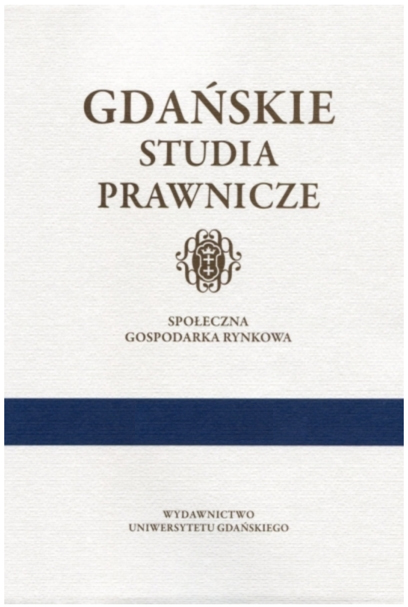Prawna ewolucja konstrukcji przedmiotu opłaty skarbowej w polskim systemie dochodów samorządowych
Legal evolution of the structure of stamp duty in the Polish system of self-government revenue
Author(s): Jolanta GlinieckaSubject(s): Civil Law, Financial Markets
Published by: Wydawnictwo Uniwersytetu Gdańskiego
Keywords: stamp duty in post-war Poland; Poland; taxes; civil law;
Summary/Abstract: The legal structure of stamp duty in post-war Poland refers to solutions adopted in the interwar period, when the subject of stamp duty was greatly expanded, as it also included some taxes. In the early post-war period a big step was made towards the legal regulation of the separation of taxes and fees in the system of public taxation. The introduction of a separate tax on the acquisition of property rights, in particular its part concerning a fee for the acquisition of these rights and a separate stamp duty, was to some extent a new solution in the legal structure of fees. The previous act on stamp duties had jointly regulated various taxes and charges. However, the concept of the separation of taxes and public charges, which gave the bases for the separation of the tax on the acquisition of property rights and stamp duty from stamp charges was not fully realized and there were still some taxes provided by the decree on stamp duty. The inclusion of the tax on civil law transactions in the structure of stamp duty made this public duty a public tribute that is not uniform in its content. It should be added that the concept of only partial separation of stamp duties and taxes was further limited in 1975 when legal solutions that had been applied before the war were implemented. A greater change came in 1989, when the taxation of crafts was excluded from the scope of stamp duties. In 2000, the acts of civil law were also excluded from stamp duties and subjected to a separate tax. It should be noticed, however,that in the Polish system of imperious public revenues there are still taxes treated as charges and charges which are partly public charges and partly taxes. Such solution, although raising doubts in terms of theoretical clarity, pursues various functions of public charges.
Journal: Gdańskie Studia Prawnicze
- Issue Year: 2015
- Issue No: XXXIV
- Page Range: 275-287
- Page Count: 13
- Language: Polish

